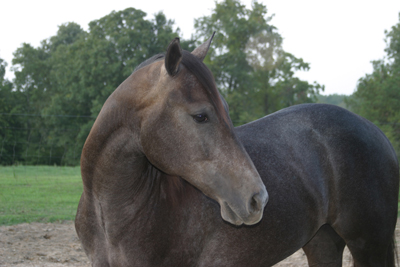Horse Industry Impact Exceeds $2 Billion In Alabama

A recent economic analysis by Auburn University (AU) economists indicates horses pump an estimated $2.08 billion annually into Alabama’s economy, directly and indirectly contributing to about 24,000 jobs that represent $706 million in total labor income.
The project measured the economic impact of Alabama’s horse business in the wake of a 2005 change in federal horse slaughter laws and 2008’s recession. The slaughter ban cost the U.S. horse industry an estimated $65 million in horsemeat exports in 2006.
The project also developed budgets for horse owners based on low, moderate and high levels of care.
Darcey Richburg conducted the analysis and said her biggest challenge was determining the state’s horse population, which includes farm horses and those used for recreational and companion purposes. Richburg pegged Alabama’s total horse population at almost 154,000 with data from the U.S. Department of Agriculture’s 2012 census and a national pet demographics survey from the American Veterinary Medical Association.
Richburg’s analysis, which is based on 2015 data, comes 10 years after a similar economic impact study, which determined horses were a $2.4 billion industry in Alabama. AU agricultural economics professor Patricia Duffy cautioned against comparing the studies’ results because of improved assessment software and a decline in state horse numbers.
AU equine science professor Betsy Wager said the study shows the industry’s impact on Alabama’s workforce.
“When you consider feed store employees, facility managers, equipment sales representatives, marketing professionals, hay and grain producers and others who supply products or services to horse owners, you see the impact the industry has on people’s economic well-being and on Alabama’s overall economic health,” she said.
The study was supported in part by the Alabama Horse Council.
Richburg’s thesis is available online at tinyurl.com/grd45zk.
